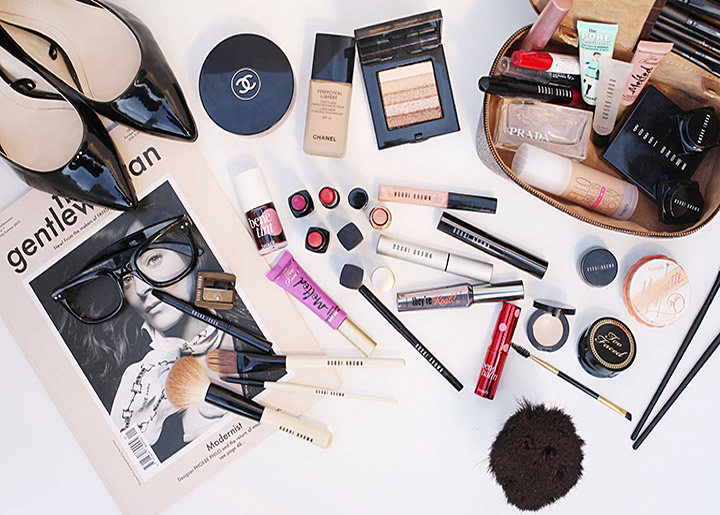
Of all the things that are different between men and women, it’s the weird biological differences that are arguably the most fascinating. Unlike social or psychological differences, which can be influenced by outside forces, male and female differences based only in biology (with a hat tip to evolution) highlight the traits that make male and female homo sapiens truly unique in the animal kingdom. We’re a weird pack of hairless apes, it turns out.
A look at the the objective, biological differences between male and female bodies reveals that men have larger brains, hearts, and feet, but have an inferior sense of smell, sight, and taste. Women have a harder time dealing with the cold and cry more, but men are more likely to suffer a heart attack or skin cancer. That’s just scratching the surface: here’s a look at the weirdest biological differences between the sexes.
1. Women Have an Organ Devoted Solely to Sexual Pleasure

There’s only one human organ dedicated 100% to sexual pleasure, and only women have it: the clitoris! Sure, men have plenty of pleasure points down there, but they are all meant to do other stuff, such as boring old reproduction. Unlike any part of male genitalia, the clitoris exists only to give women sexual satisfaction.
2. Men Pee in a Straighter, Neater Stream

Men are notoriously messy micturators, insisting as they do on standing up to do the deed, allowing their spray a chance to land on the floor, the wall, their wife’s latest Cosmopolitan, the toilet paper, the cat, etc. But did you know that the male body is made to allow urine to be “projectile in nature” and thus less prone to “satellite droplets” getting all over the place?
It’s all thanks to the navicular fossa, an enlargement of the urethra near the tip of the penis. The navicular fossa “spirals” the urine, allowing for a smoother stream with less separation, meaning (theoretically) men should be neater, straighter shooters during the task than women, who lack this little feature. Maybe if all men agreed to sit down to pee, About Schmidt-style?
3. Men Are More Tolerant of the Cold

In the middle of a thermostat war with your spouse? Know this: a woman’s mean body temperature is slightly warmer than a man’s, but a woman’s hands and feet are, on average, much colder. Why? One theory is that body fat (which women have more of) keeps their organs and important reproductive parts warm, but at the expense of their chilly fingers and toes. There are other factors to consider, but on average it’s true that women have less tolerance for cold temperatures than men. So have some sympathy, guys!
4. Men Have Bigger Brains (But Are Not Smarter)

Men are larger than women, on average, which means that their brains are larger on average, too (about 10%, in fact). But bigger isn’t better when it comes to brains. The truth is that quality trumps quantity, and the sexes have different advantages: women get their superior language skills from a larger frontal and temporal cortex, while men have superior spatial skills thanks to a more active left hippocampus.
5. Women Have a Better Sense of Smell

No one knows why, but women are born with more olfactory bulb cells than men (43% more!), meaning they are pre-wired to have a superior sense of smell. Scientists think this skill may have something to do with reproductive behavior such as kin recognition (i.e., helping to avoid inbreeding in the early days of humanity).
6. Men Have Larger Hearts and Slower Heartbeats

Much like their big ol’ brains, guys have larger tickers than women, and for the exact same reason: on average, guys are bigger! A larger heart doesn’t have to beat as fast as a smaller heart, so it follows that women would have faster heartbeats in general than men (78 beats per minute versus 70). The bad news is that large or over-sized hearts are not nearly as healthy as lean, efficient hearts, and men are more likely to suffer from heart disease.
7. Men and Women Process Alcohol and Drugs Differently

Women are more likely to get liver disease from drinking alcohol or acute liver injury from ingesting pharmaceuticals than men. Our livers are that different! Sure, this means women can’t drink as much as men and stay as healthy (boo), but it also has the further implication that prescription and over-the-counter drugs affect women and men – and their livers – differently. That’s a big deal, because most drugs (especially painkillers) are sold without the sex of the patient in mind.
8. Women Have More Taste Buds

Not only do women have a better sense of smell and sight (when it comes to color, at least), they also literally have more taste buds than men! This means a more sensitive palate and a higher number of female “supertasters” (people who can identify flavors more strongly than others). About 35% of women are supertasters, while only 15% of men can make the claim.
9. Women Have the Largest Cell in the Human Body, and Men Have the Smallest

Men may be larger, on average, than women, but on a cellular level, women have men beat. The largest cell in the human body, in terms of volume, can only be found inside a woman: the ovum, the female sex cell, which is about one millimeter in diameter. The smallest? The teeny, tiny male sperm cell.
10. Women Cry More Than Men

Let’s just get this out of the way: the idea that women are somehow more emotional, dramatic, sensitive, or “touchy” than men, and are thus unfit for certain high-stakes jobs or roles, is a nasty stereotype used for centuries to keep women from positions of power and authority.
That said, there is scientific evidence that women do cry more than men (or are at least more willing to admit it), and for a variety of reasons. Women tend to have shallower tear ducts, meaning tears are more likely to spill down their faces. The hormone prolactin, present in much higher levels in women after puberty than men, is present in tears and scientists think it could explain why women are more prone to cry. Testosterone has also been shown to inhibit crying: male cancer patients with lowered testosterone have been shown to cry more often than before they began their treatment.
11. Men Handle Sleep Deprivation Better

No one likes to be sleep-deprived, but studies show that women are hit harder by lack of sleep than men. Sleep-deprived women are at a higher risk for high blood pressure, diabetes, heart disease, and depression than equally groggy men. The reasons are unclear, but scientists think hormones may be to blame.
12. The Clitoris Grows with Age, the Penis Doesn’t

Call it Clitoris Envy: unlike the penis, which stops growing when a man is between 13 and 18 years old, the clitoris continues to grow well into adulthood! In fact, when a woman is 32, her clitoris is four times larger than it was at puberty. The clitoris exists only for sexual pleasure, so a woman’s body is wired to be more receptive to such pleasure the older she gets.
13. Women Detect Colors Better

It sounds like a scene out of a cheesy family sitcom: the long-suffering wife wants to re-decorate, but her husband can’t be bothered to grok the difference between white and off-white wallpaper, or mauve and periwinkle drapes. Subtle variations in color just aren’t important to him, or he claims he can’t even detect the differences. Well, it turns out that there is evidence to support the stereotype: studies have shown that women are superior at color detection, with hormones and evolutionary factors (like gathering colorful berries while men were out hunting) likely to thank.
14. Women Have Longer Index Fingers Than Ring Fingers and the Reverse for Men

It may sound like crackpot palmistry, but finger length can be a scientifically sound measure of a variety of factors, including fertility, spatial reasoning, susceptibility to certain diseases, athleticism, sexual orientation, etc. This is because finger length is connected to testosterone and estrogen levels in the womb. In men, the ring finger is typically longer than the index finger, and vice versa for women. Don’t fret if the reverse is true for you: while finger length can indicate certain traits, advantages and deficiencies, it’s not a hard and fast rule (e.g., men with tiny ring fingers can still be plenty fertile).
15. Men Have Thicker, Oilier Skin (But It’s More Sensitive)

Men may have thicker skin than women, but that doesn’t mean they’re more protected from harm: they also have more sensitive skin, with a greater need to moisturize. Along with that thick skin comes more sebum, which means more oil, more acne, and more potential for scarring. Men are also more likely to suffer from skin cancer.
16. Men Have Longer, Wider Feet

Men have larger brains and hearts than women, but that’s just because they tend to be bigger overall. But even among men and women that are the same height and weight, men tend to have longer, wider feet than women.





Leave a Reply